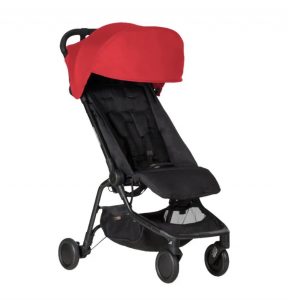After the newborn stage, mothers often ask – When is the right time to introduce solids to my baby? Will my baby sleep longer at night once introduced?
When should we start introducing solids –
The World Health Organisation (WHO) recommends introducing solid foods at ‘around 6 months’ of age. However, to be fully confident that your baby is ready to eat solids, you can look out for the below clues:
- Has the baby’s birth weight at least doubled?
- Is the baby able to sit upright? (with a little support)
- Does the baby have control of their head and neck movements?
- Is the baby picking up things to put in his/her mouth?
- Is the baby starting to show an interest in other people’s food?
It’s not recommended to introduce solids before 4 months. Introducing solids to early can cause digestive discomfort and disrupt sleep. Baby’s digestive systems are not ready to cope with anything other than breast milk or formula. The most important thing is to assess whether your baby is developmentally ready.
Will my baby wake up at night when solids are introduced?
Lots of parents understandably misinterpret frequent night waking as a sign that a baby is ready to start solid foods. Many babies will still wake up at 6 months of age and this isn’t always because they are hungry. We all stir between sleep cycles at night – some babies signal to their parent for support to get back to sleep, and others do this independently.
So many reasons that babies wake up during the night – wind, dirty nappy, startled by a noise, over-tired or maybe they have stirred between sleep cycles and just want a cuddle. You are your baby’s expert and it’s down to you to judge whether they are hungry in the night, and whether they need one, two, three or more feeds. Always assess – is there another reason that my baby has woken? For babies of weaning age and older is it always worth waiting and interpreting their signals before rushing to feed at each wake up.
If your baby is showing all the signs that they are ready for solids, but you haven’t started weening them yet then YES it’s possible that this could be contributing to night waking. Remember, it is not about ‘filling your baby’s tummy’ – in the beginning they should only consume a tiny amount. The amount they eat is also highly unlikely to have an impact on their sleep – be sure to follow baby’s lead on how much they want to eat. Trust them to take what they need. It can be very tempting to try to get them to take more in the hope it will make them sleep, but this isn’t the case.
When introducing solids, can this cause frequent night waking?
It is possible that digestive issues after starting solids may temporarily disturb your baby’s sleep. The baby’s digestive system is adapting to the change of an all-milk diet to one that includes solid foods. The key is that it should be a temporary disturbance. If your baby has never slept ‘well,’ and continues this way after introducing solids, it could be the time to think about other reasons why they may be waking frequently. However, it is just as likely that something else could be causing a change in your little one’s sleep patterns. Your baby is learning so many new skills in his or her first year – rolling over, sitting up, communication…it is very normal for sleep to fluctuate and change as your baby grows.
Can some foods help with sleep?
There are many claims of different foods that will make your baby sleep, but ultimately a good night’s sleep for babies comes from having a healthy balanced diet including all food groups once introduced. More importantly we should look at the time they eat – having a big meal before bed causes our metabolic rate and body temperature to rise, which makes it harder for us to get to sleep. What about meat? Meat is a first food now, and in small portions is important for iron levels and protein. Start slow, and start in the day not the evening, too much protein at night can disturb your babies sleep. It is best to give meals around two hours before bedtime to allow baby to digest their food. Always try new foods at breakfast or lunch to avoid a disturbed night’s sleep!
Keep increasing your baby’s solids slowly each day, keep offering new foods with new textures. Offer finger foods from 7-9 months to improve your baby’s pincer grip, and if you start to see sleep being affected, contact me via my FREE 15 minute intro call so we can discuss options.
Happy Sleeping
Stephanie X







